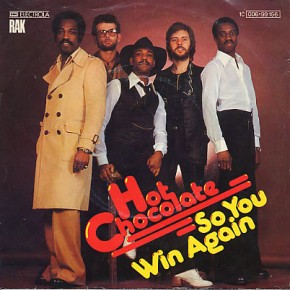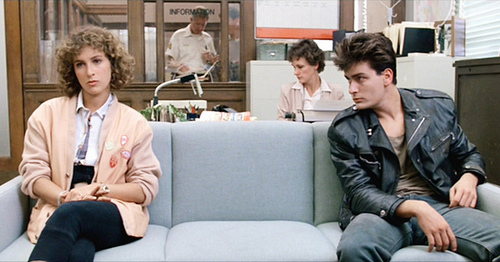
Another week, another devastating attack on American performancism, this time from a parent rather than an educator. Where William Deresiewicz sees a cult of success poisoning our kids, Drew Magary sees a cult of competition. What Deresiewicz sees primarily as a failure of higher education, Magary sees as something far more expansive. And Magary’s “Down With America’s Kid-Competition Complex” actually arrived on Deadspin a full week before Desresiewicz’s treatise, so he wins the, er, contest.
Suffice it to say, as a father of toddlers who have already been thrust into the ‘race to nowhere’, I found the article so painfully true/funny in places that I immediately ordered Magary’s book, Someone Could Get Hurt: A Memoir of Twenty-First-Century Parenthood. He covers quite a bit of ground when it comes to the operation of the law, its inescapability, its unforgiving severity, its backfiring and despair-inducing qualities, etc. So if there’s a (hilarious) undercurrent of bitterness in Magary’s tone, you can hardly blame him. It’s one thing to bear the burden yourself, it’s another to watch your children have to do so. Oh and he’s right about the backstroke:
There are reminders everywhere that you and your kids won’t amount to anything unless you can beat a nameless, faceless legion of competitors. There is always competition out there, waiting and hungry and formidable. The whole damn country is a single-elimination bracket. This is why we’ve developed entire microeconomies to help people defeat the competition. From nursery-school parents hiring tutors for 2-year-olds, to the $4 billion spent every year on standardized-test preparation, we are paying top dollar to ensure our exceptionalism, even if making everyone exceptional is an impossibility. We sort our kids. We rate them. We chart them, and we measure their progress against the rest of the country and pray that they come out on the high end of the curve…
I asked some parent about a nearby high school that got similar high ratings from U.S. News and GreatSchools, and he told me that parents at the school hired off-hour tutors to pump their kids up and keep them ahead of the other students. That seemed like lunacy to me, but this is what many parents now feel they MUST do in order to secure some kind of bright future for their offspring. Either you let the kid slip into a life of fry cooking, or you apply pressure. Lots of pressure. Unbearable amounts of pressure. A “good” school offers such Tiger Mom-levels of pressure…
I need to get [my son] to accept the value of losing, which is frankly counter to how losing is portrayed in the American mainstream. Losers are shunned. Losers are ridiculed. “Loser” is Donald Trump’s favorite insult, which is just so telling. Jürgen Klinsmann publicly stated that the U.S. men’s soccer team couldn’t win the World Cup, and for that obvious assessment, he was scorned by Michael Wilbon and other assorted members of the Hot Take Collective. For Wilbon, even acknowledging the reality of losing is itself a way of losing. In his eyes, real competitors don’t anticipate loss. They delude themselves into the possibility of winning even when that’s stupid. This is why he told Klinsmann to get out of America. Americans do not think this way. Americans compete…
How many times have you heard athletes scorned for being unable to handle pressure? Tony Romo can’t handle pressure. Michael Jordan LIVED on pressure… In sports, you are judged almost exclusively on your response to pressure, even though in real life, pressure is something best avoided. Stress causes headaches, depression, heart problems, addiction, you name it. Pressure will kill you. Doctors do not prescribe pressure for your ailments. You aren’t supposed to live life like it’s a car accident… There are only a few people who genuinely enjoy pressure—mostly assholes—and the sporting culture and education culture is basically built to accommodate just them. No one else.
I have a hard time striking the middle ground between zealous overparenting and hippy-dippy crunchy vegan artisanal parenting. But this is a polarized culture, so it’s hard to avoid being painted one way or the other. Ask your kids if they won and suddenly you’re Marv Marinovich. Say it doesn’t matter and you might as well live on a commune. There’s not much in between, and it’s the principal goal of the competitiveness industry to ensure there isn’t. You’re either extraordinary or you’re useless. And once you’re into that sort of mentality—trying to pile up excellence on top of excellence—it’s hard to pull yourself out of that slipstream…
There needs to be a way to opt out of this. The best way to succeed in life is usually to not process any sort of competition… Enslaving yourself to the almighty W makes you stupid; it deforms you, robs you of your creativity, as you pursue some agreed-upon idea of excellence instead of doing the worthwhile job of defining it for yourself. No one ever thought of a good idea in the middle of cramming for the SAT…
No one ever says the obvious, which is that competition is irrelevant once you decide on your own ambitions and the best way of pursuing them—once you’ve defined your own parameters for success. Being satisfied with the process of learning, or playing, or participating, is what matters. If one of 5,000 other people beat you out for that chili cook-off prize, who gives a shit? You should never rely on overwhelmingly poor odds to define your happiness. Otherwise you’ll never be happy. One competitive gauntlet will just give way to the next.
 Obviously what Magary is talking about isn’t confined to America. We’re simply living in a context where whatever checks used to exist on the cult of winning have been removed. Some would chalk the escalation up to capitalism, others would cite the decline of religion (and there is something deeply godless about the atmosphere he describes) or the American Dream gone awry. Others might blame technological advances or the cultural hegemony of pro sports or Hollywood. Most of the parents with whom I commiserate recognize the unhealthiness of it all but feel, like Magary, powerless to absent themselves; in other words, they’re operating more out of a fear about being left behind than an anxiety about getting ahead. Whatever the cause of the surge itself, it’s hard to shake the sense that, underneath it all, our natural inclination for self-justification is running absolutely wild. As Deresiewicz theorized, the stakes are existential rather than economic.
Obviously what Magary is talking about isn’t confined to America. We’re simply living in a context where whatever checks used to exist on the cult of winning have been removed. Some would chalk the escalation up to capitalism, others would cite the decline of religion (and there is something deeply godless about the atmosphere he describes) or the American Dream gone awry. Others might blame technological advances or the cultural hegemony of pro sports or Hollywood. Most of the parents with whom I commiserate recognize the unhealthiness of it all but feel, like Magary, powerless to absent themselves; in other words, they’re operating more out of a fear about being left behind than an anxiety about getting ahead. Whatever the cause of the surge itself, it’s hard to shake the sense that, underneath it all, our natural inclination for self-justification is running absolutely wild. As Deresiewicz theorized, the stakes are existential rather than economic.
But before we scapegoat the system (exclusively), Lord knows the kids themselves have self-justifying impulses in spades well before they’re indoctrinated by the “competition complex”. Just last week I overheard an introduction between two three year olds, where, instead of leading with their names, one informed the other that he was taller. It was downhill from there.
That last bit Magary writes about gauntlets reminds me of something Will wrote last week in response to the Deresiewicz article: “You’re studying at Yale… but have you read Finnegans Wake? The distance of high-achieving kids from their standard and the difference of low-achieving kids from theirs are the same. But the psychology is not equal, because a string of successes has tempted the high-achieving kids to value that particular standard more. How else to account for the fact that people who are actually more successful (by the common, flawed definition) feel more pressure to succeed?” You might just as easily say that the command for perfection (which is really what this is) knows no satisfaction–the higher you climb, the longer the ladder gets. There’s nothing peculiar to 21st century America about that, it’s simply the nature of L-A-W. Probably part of the reason why people like Mother Teresa or W.H. Auden would get more convicted of their sin, rather than less, the ‘holier’ they became.
Again, Magary doesn’t sound like he’s advocating for less harsh standards of victory or something as naive as a banishment of losing itself. There are important, universal lessons there (as his incredibly amusing struggle with his 5 year-old son illustrates). And clearly the strategy of over-affirmation, where we deal with our anxiety about losing by calling everyone a winner, is not the answer. As he writes earlier in the piece, “No child has ever been hoodwinked by phony accolades.” He’s got a point.
I can’t help but think this is where the Law of God (big L) might genuinely help us–or where we feel its loss most acutely. If the ever-shifting, never-stopping little-l laws of society give us the illusion of meeting their demands (for that brief second before the next set appears), then the Big L Law of God confronts our collective striving by stopping us in our tracks and putting us all, parents and children alike, on the same playing field: not that of winners but of, yes, losers. Instead producing self-loathing or apathy, though, don’t we find that the resulting humility often gives us some compassion for our fellow losers (not to mention ourselves)? And even when it doesn’t, and the internal and external jeers of competition only seem to get louder and more intrusive, maybe it’s enough to have one uncontested W we can still lay claim to. You know, the greatest loser of them all.
Take it away, Todd:

COMMENTS
Leave a Reply













